Five Questions for Robert Morris, a top book reviewer of business and non-fiction books on Amazon3/10/2018 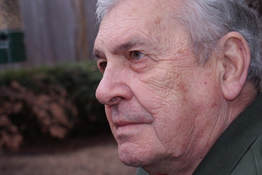 With so many business, leadership and innovation books being published every year, it is hard to decide which books to read when you have a limited time. That’s why I like reading Robert Morris’ book reviews, who is one of the top book reviewers on Amazon. According to his bio, he has reviewed over 3,400 books. One of the books he reviewed was mine: Winning Speech Moments: How to Achieve Your Objective With Anyone, Anytime, Anywhere. He does an excellent job with his reviews in which he lets readers know what they will learn and leaves it up to the them to decide if they want to read the book. Since he provide such a great service in reviewing books I like to read, I had few questions for Robert which he answers below. What books do you like to review and why? Most of what I read are business books, but I also read non-fiction books such as biographies, memoirs, essay collections, and histories, as well as novels. I only review the books I admire. I like to read those that immediately seize my attention and do not let go until the final paragraph. In fact, as I am within (let's say) a dozen pages of the conclusion, I begin to feel sad that my engagement with the work will soon end. Since childhood, I have viewed books as magic carpets that could transport me to the plains of Troy, Dickens' London at Christmas time, and experiments at the Edison Lab in Menlo Park and later at Xerox's Palo Alto Research Center. My purpose in reviewing is to build a bridge between the given work and those who read my reviews. Peter Drucker once thanked me for "not giving away the plot" in reviews of his books. What is your process for reviewing a book? With regard to works of non-fiction (especially business books), I first check out the subtitle, then the table of contents. The subtitle suggests a question to be answered or a problem to be solved whereas the table of contents serves as a roadmap, providing an overview that resembles a Google Earth photo. Then I skim the book until I read the final chapter. All that is Step One, and it takes about 15-20 minutes. During Step Two, I read the first 2-3 chapters word-for-word, highlighting key passages. If I decide to read the entire book, I continue the process. That's Step Three. I can read all most business books in less than an hour. Reviews take longer. All my reviews have the same primary purpose: To help those who read them to decide whether or not they wish to read the given book. What makes a review worthwhile for readers? Readers tell me that they most appreciate help with deciding whether or not to read the given book. I explain the WHAT and sometimes the WHY; it remains for the author to explain the HOW. What have you learned about writing from reviewing so many books that writers should pay attention to when they are writing their next book? The basics haven't changed since the first "book" was created: o Who is my reader? o What is the purpose of what I create? That is, explain with information, make vivid with compelling details, explain a process, and/or convince. These are Aristotle's four levels of discourse that he devised more than 2,000 years. The purpose of some books is primarily to entertain. And some books are "hybrids," such as Swift's A Modest Proposal, Voltaire's Candide, and Orwell's Animal Farm which can cause both a smile and a wince. Keep in mind that the original meaning of sarcasm is "ripping of flesh." Lifelong Learning I also think that aspiring writers must master the basics of literacy while they gain what should be a never-ending liberal arts education. It is imperative to understand the rules before breaking them. Don’t Waste Reader’s Time With Fluff Too many aspiring writers are ignorant, careless, and self-absorbed...without justification. Though many are worldly, it is hard to discern much thought derived from their experience. Emily Dickinson, a recluse, lived life to the limits...in her mind. Although blind since birth, Helen Keller "saw" more than almost did anyone else in history. Life should be a delicious feast. The best writers have a voracious appetite and very sharp teeth. What have you learned about business, leadership, creativity, innovation, etc., from reviewing so many books related to these topics? Years ago, Albert Einstein was playfully chided by a Princeton colleague for asking the same questions each year on his final examinations. Einstein replied, "Quite true. Guilty as charged! Each year the answers are different." I think the same is true of business. The same questions but different answers through various "revolutions." For example: 1. Who is our customer? 2. What is our core business? 3. How can we create or increase demand for what we offer? 4. How can we attract and then retain the people we need? 5. How can we reduce (if not eliminate) waste? During dinner a few years ago with a very prominent venture capitalist in San Francisco, I asked him how many requests for a meeting did his firm receive each month. "On average, about 1,000. Again on average, we agree to meet with about 75 or so each month." Then I asked how they decided on funding. "We keep three questions in mind. The first two are easy. 'Who are you?' and 'What do you do?' How they answer the third one separates the wheat from the chaff: 'Why should I care?'" Most companies don't answer that last question very well. As a reviewer, you are trying to help readers decide whether they should read a book, but do you also put yourself in an author’s shoes before you post your review? With regard to authors, I never wear their shoes -- nor do I polish them -- but I do appreciate how difficult it is to get a reputable agent which is more difficult than getting a reputable publisher. Most books that are published don't sell as well as their authors originally hoped but at least may have marketing value. There is much to be said for self-publishing and even more to be said for e-books of 50 pages or less. First, of course, you have to have something to say that will take into full account this implicit question: "Why should I care?" Q: Which question do you hope to be asked during an interview – but aren’t – and what is your response to it? A: "What is the single biggest mistake that senior-level executives make?" My response: They become hostage to what James O'Toole so aptly characterizes as "the ideology of comfort and the tyranny of custom." Book Recommendations Of all the business books you have read, which five do you think every executive should read and then re-read from time to time? Here are my five...listed in alphabetical order:
Three best films that dramatize business principles
I have collected several hundred thus far. These are the ones I most often cite in book reviews, interviews, and commentaries. o "Potential means you ain't done it yet." Darrell Royal o "Cherish those who seek the truth but beware of those who find it." Voltaire o "If you think education is expensive, try ignorance." Ann Landers o "The early bird may get the worm but the second mouse gets the cheese." Steven Wright o And my favorite passage from Lao-tse's Tao Te Ching: "Learn from the people Plan with the people Begin with what they have Build on what they know Of the best leaders When the task is accomplished The people will remark We have done it ourselves." BONUS: "If you want to go fast, go alone. If you want to go far, go together." African proverb If you want to find out more about Robert Morris, please check out his website: https://bobmorris.biz/. I recommend you get on his email list so you can get his reviews of business books, especially those that are newly released. He will make sure you have the latest info on thoughts authors have put down in articles, books or interviews. I recommend it since it is my must read blog. And I want to thank Bob for helping me learn from him. * * * * * 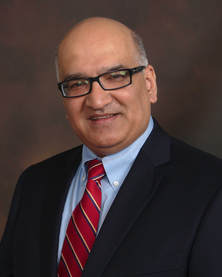 Jay Oza is a writer, speaker, executive coach and a student. He has worked as a programmer, a technical sales consultant and an alliance manager before reinventing himself. He volunteers for Hire Heroes USA mentoring and coaching experienced military veterans get executive level jobs. He is an author of Winning Speech Moments: How to Achieve Your Objective With Anyone, Anytime, Anywhere. Please download the free speech checklist and the free speech workbook to help you with your next high stakes speech. I will add you to my newsletter list so I can provide you tips, techniques and insights on speaking and other related subjects every two weeks. You can reach me at [email protected].
0 Comments
 For someone who recently published his first book, writing is a very lonely activity. Finishing the book was a real struggle, but I persevered and finished it. Unfortunately, many who want to write a book don’t even get started and some who do start never finish it. Why? There are many reasons for not completing a book, but one important reason is that one does not have “cheerleaders” who are there to push her past the finish line. Victoria Ichizli-Bartles has written Cheerleading for Writers, a book that helps those writers who need some support to finish their books and for non-writers who want to get a better understanding on how a writer takes a book project from start to finish. In this blog, I ask five questions plus a bonus question to Victoria Ichizli-Bartels about writing. I wanted to understand how she has improved as a writer, the writing process she uses, how she comes up with the subject of her books and get her recommendations on books that have influenced her writing. Note, I reviewed her book on Amazon and as you will see from reading the review that I highly recommend her book. How has writing several books improved you as a writer? It made my writing flow easier; I second-guess myself less and less. My grammar (as a non-native speaker) improves, as well as the quality of my writing. I learned to write the best book I can in that given time of my life, but I also learned that there are many perfect ways to write the same book, so I stopped trying to write a bestseller. Sending my work to Writer's Digest Self-Published Book Award and getting amazing feedback and grades helps to realize that I am not that bad. Each new book also means further feedback on it. And each of them got positive reviews. That motivates me as a writer. Also, the editing process, and realization that the teamwork of my editor and me make my books better make me even more enthusiastic about writing and less afraid to make errors. That goes back to less second-guessing. You mention in your book that Cheerleaders for Writing is a compilation of your blogs you wrote between November 2015 and October 2016, do you think this is a good approach for someone who wants to write her first book, so she has better success at completing her first book? Yes, I think it is. I was fortunate enough to find my first fan (when not counting my family and friends) on my blog. I shared my book with her, and she helped me to pull through the process. Blogging a book, as some authors call that process, helps to find fans who cheer us through the process. But that is also a commitment you make as soon as you share your writing with others. This commitment helps you to persevere. If you start blogging your book and get one or two comments on it, then more, after that it is harder to stop and explain why you quit than simply continue writing chapter by chapter. Stopping doesn’t make the things, which we started, complete. And it’s harder to stop when people are waiting for the story to continue. What is your writing process? Do you use a detailed outline before you start writing your book? No, I don't use a detailed outline. I like micro-plotting. Meaning, that if something is not progressing and I procrastinate a chapter, then I look closer there and take time to jot bullet points. The outline emerges step by step. Right now I work on a novel that way: jot thoughts on the outline, or write down parts of various scenes, descriptions, and dialogues. I try not to limit the creative process. And if I have a fun idea for a scene, then I write it down. Independent where in the story it occurs. Earlier I carried a notebook with me to do it, but I caught myself procrastinating to copy those bits into my book projects in Scrivener. Now I send myself emails and then it is easier to copy those bits into the manuscript. The game-like approach as well as seeing myself and my behavior non-judgmentally helps here a lot. When I observe myself being too stressed about a piece of my writing, then I try to slow down and sort out my emotions about it, paying attention which parts of that bit are fun to work on. And then I emphasize on those fun bits getting rid of or modifying the other. If I have fun writing something, then there is a good chance that my readers will have fun reading that. If I hate the scene I write, it will show, and my readers will hate it too. So nowadays I let (as much as I can) my curiosity, enthusiasm, and fun be my guides in both plotting and writing. What are some of the differences between writing nonfiction vs. fiction? Do you enjoy one over the other? I enjoy both, but I find right now non-fiction dominates my writing time and it looks I say more yes to it than to my fiction. That also has the interest from potential readers. But there are bits of time when I have some ideas for scenes for my current fiction work-in-progress, and then they feel easy and enjoyable to write. I guess my answer to these two questions might differ from one day to another. Has writing made you a better reader or being a good reader made you a better writer? Absolutely yes, in both cases. I wouldn't have been a writer if I hadn't been addicted to reading. I do read differently since I started writing. I observe the writer while reading. I am currently very much into Nora Roberts books (one of the reasons is that they are both captivating and comforting to read; another is, she takes such good care of her characters, settings, and the stories encapsulated in each book). Her books, the scenes, the characters give keys and clues for my books. For my current work in progress, one great clue was that I want to try two points-of-view and voices instead of one as I did before. Reading helps me both improve my writing and identify what is fun for me right now. Bonus Question: How has writing changed you? I didn't know for a very long time that writing was my dream and a long-term calling. In addition to my work as a semiconductor physicist, engineer, secretary, personal assistant, interpreter, consultant, teacher, project manager, team leader, business owner, and other, I tried various art-forms. I attempted making jewelry, playing guitar, painting, drawing, dancing, knitting, making self-made Christmas decorations, playing games, and some other, but nothing kept my interest for long. I wasn't curious to stay longer with any of these. I still do some of them on one or another occasion, but nothing that brings me joy to come back again and again. I found that writing is the best way for me to express myself. 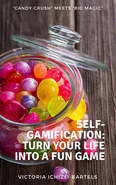 Writers read a lot, and I always like to find out what five books that have influenced them or their writing. Here are five books Victoria Ichizli-Bartles recommends. You can find her extensive list in “Recommended Reading” at the end of Cheerleading for Writers.
Information about Victoria Ichizli-Bartles books and her upcoming book Cheerleading for Writers is one of Victoria's motivational books. Check out all of them and her other books on https://www.victoriaichizlibartels.com/books/ If you would like to increase your motivation and productivity in writing and other projects, and have fun in the process, then take a look at Victoria's book crowdfunding project Self-Gamification: Turn Your Life into a Fun Game (https://www.inkshares.com/books/self-gamification-turn-your-life-into-a-fun-game). 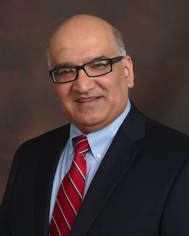 Jay Oza is a writer, speaker, executive coach and a student. He has worked as a programmer, a technical sales consultant and an alliance manager before reinventing himself. He volunteers for Hire Heroes USA mentoring and coaching experienced military veterans get executive level jobs. He is an author of Winning Speech Moments: How to Achieve Your Objective With Anyone, Anytime, Anywhere. Please download the free speech checklist and the free speech workbook to help you with your next high stakes speech. I will add you to my newsletter list so I can provide you tips, techniques and insights on speaking and other related subjects every two weeks. You can reach me at [email protected]. |
AuthorJay Oza Archives
July 2024
Categories
All
|
© 2017 Winning Speech Moments

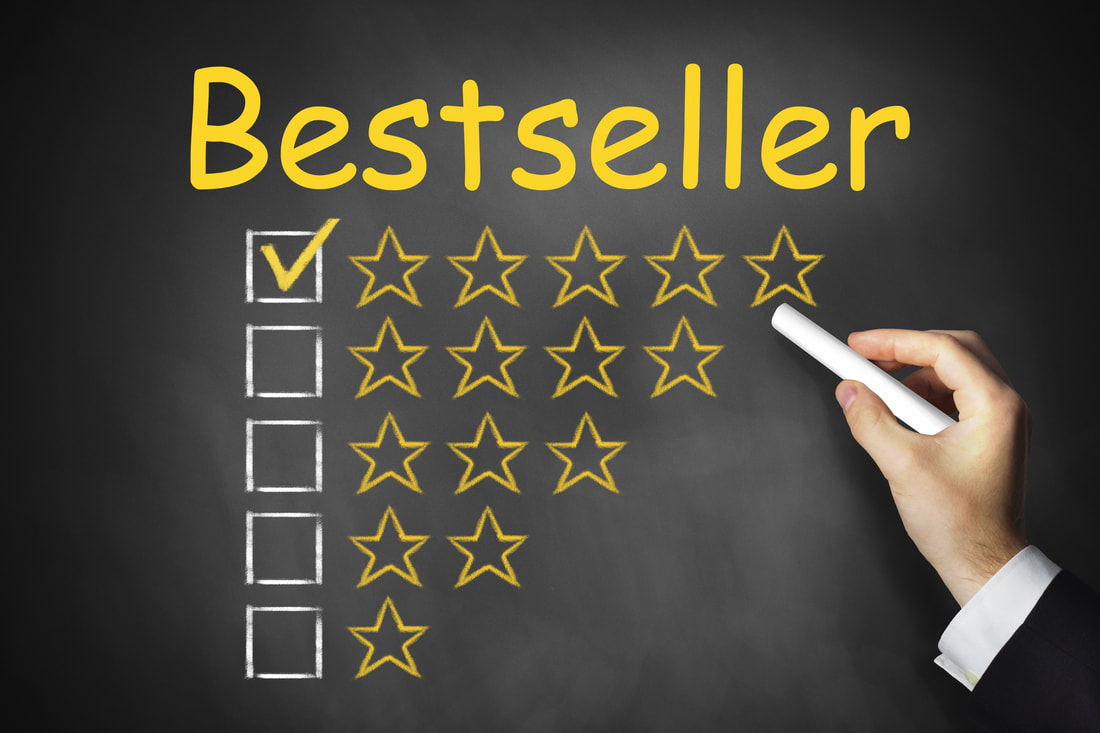

 RSS Feed
RSS Feed